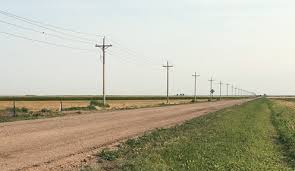
“Oklahomans should pay more attention to the obscure, yet ever-increasing OUSF charges on their phone bills.” Corporation Commissioner Bob Anthony.
Phone bills will likely be going up soon in Oklahoma because of a State Supreme Court ruling. And Corporation Commissioners don’t like it but their hands are tied.
Faced with the ruling, the Oklahoma Corporation Commission was forced Wednesday to increase the amount of money put into the Universal Service Fund which helps finance rural telephone service. But customers everywhere will pay for it.
The Commissioners ended up increasing the funding rate from 1.28 percent to 6.28 percent in order to raise an estimated $53 million.
“We’re bound by statute to do this,” said Commission chairman Todd Hiett, “But I’m not very happy to do this. This is not pennies, but we have exhausted all avenues that we have.”
What prompted the move was an April State Supreme Court decision first reported by OK Energy Today in which the court reversed a commission decision in 2017 against Dobson Telephone Company’s request for more than $95,000 from the Universal Service Fund.

The reaction from Commissioner Bob Anthony was even more pointed in which he argued the supreme court decision will result in an increase of the surcharge rate by five times over the 2018 rate.
“A lot has changed since the OUSF was created by the Oklahoma legislature in 1997,” stated Anthony in a two-page opinion he entered into the record. “Lawmakers and ratepayers both should be curious to know ow many small independent telephone companies with fewer than 1,000 total customers receive annually over $1 million each in subsidies essentially paid mostly by customers of ATT, Verizon, Cox and Sprint.”
But the information about those small telephone companies remains a secret because it is not considered public information, even though the Corporation Commission distributes the funds.
“Since the Oklahoma Constitution designates telephone companies as regulated public utilities and they get multi-million dollar subsidies, shouldn’t the OUSF payouts and number of subsidized phone lines be public, not confidential information?” questioned Anthony.
The Commissioner said Oklahomans should pay more attention to the ever-increasing OUSF charges on their phone bills.
But there’s more to come as the phone won’t stop ringing, so to speak according to Brandy L. Wreath who is administrator of the OUSF for the commission.
“We expect anywhere from another $5 million to $25 million in similar requests coming before you in the coming weeks. This is not the end of the story. But the items are beyond our control,” he told commissioners. “And this will not likely go down next year.”
Customers of the large phone companies in the state will pay for most of the rural service. AT and T companies such as ATT Oklahoma, New Cingular Wireless PCS LLC and Cingular Wireless are among the top five companies that contribute the most to the OUSF assessment for 2017-2018. The two others are Cox Oklahoma Telcom, LLC and Alltel Communications LLC.






